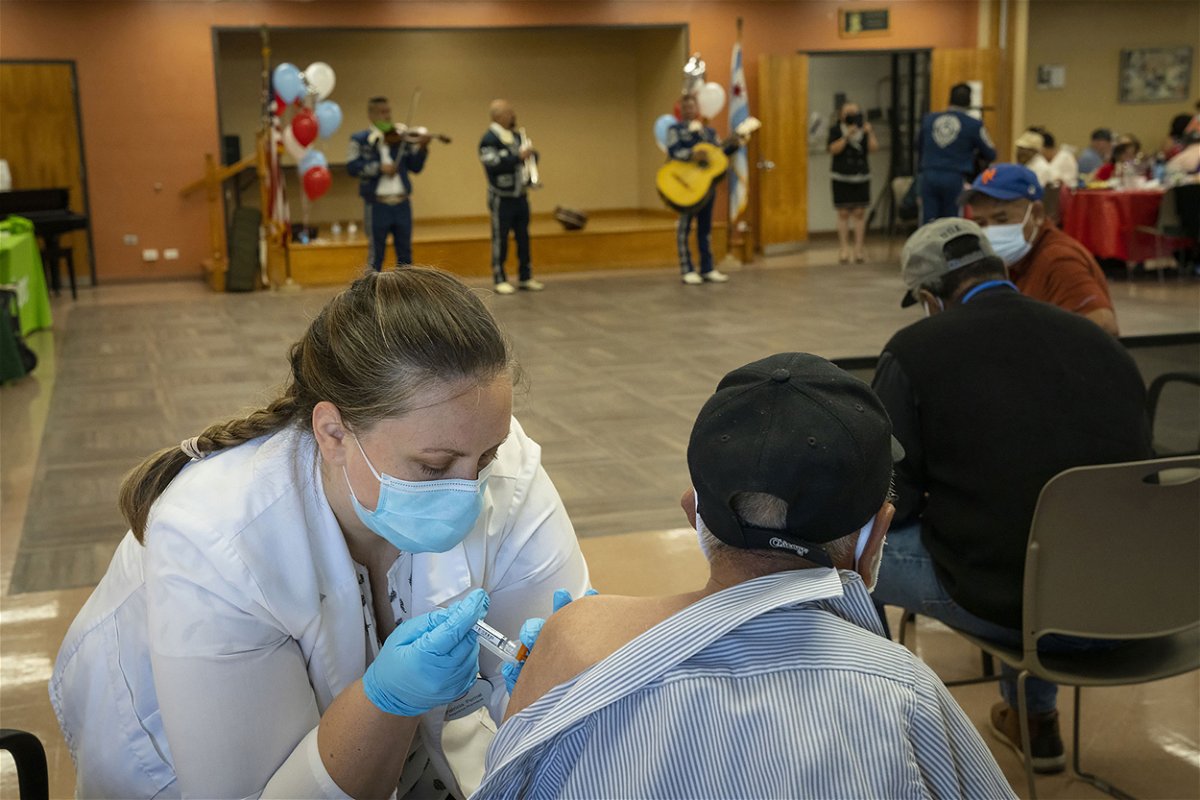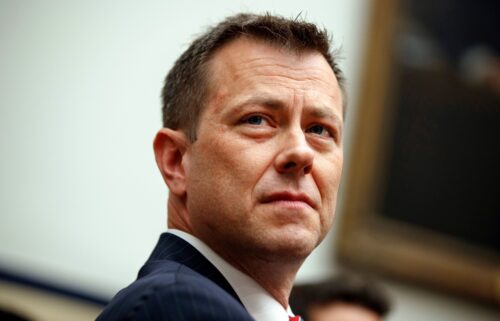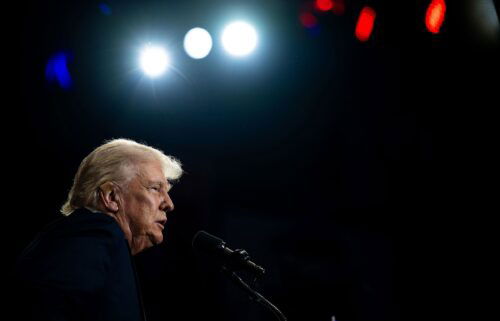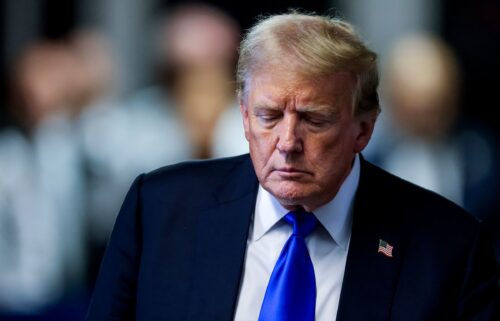New White House plan aims to provide uninsured with free Covid-19 vaccines

Pharmacist Patricia Pernal administers the newest Covid-19 vaccine during a clinic for seniors at the Southwest Senior Center on September 9
By Tami Luhby, CNN
The Biden administration unveiled Tuesday a $1.1 billion program aimed at providing Covid-19 vaccines and treatments to the uninsured at no cost after the federal supply is exhausted.
The two-part initiative would utilize pharmacies, local health departments and federally supported health centers to provide Covid-19 care, according to a fact sheet distributed by the White House. The funds should support the program through December 2024.
Americans can currently receive Covid-19 vaccines and certain treatments at no charge because the federal government purchased them for distribution to the public. But when that supply is exhausted, the products will shift to the commercial market after Congress refused to provide more funds to purchase additional supplies. Most people with insurance will be able to continue getting vaccinated for free, but that’s not the case for those without coverage.
One prong of the new program calls for creating a public-private partnership with local and national pharmacies, which administer the majority of adult Covid-19 vaccinations. The federal government will provide a per-dose payment to the pharmacies to cover the cost of administrating the vaccines and treatments, including the antiviral medications Paxlovid and Lagevrio. Pharmacies can also receive one-time payments for each site that targets areas with low rates of access and vaccination.
To let the uninsured know about the program, the pharmacies will be expected to conduct outreach and work with community groups that focus on underserved populations.
Just how many pharmacies choose to participate, however, remains to be seen. The US Department of Health and Human Services will work to establish contracts with the pharmacies over the next few months with the aim of launching the program in the fall, according to the fact sheet. It expects pharmacies that have participated in the US Centers for Disease Control and Prevention’s “COVID-19 Test to Treat” program and other pandemic partnerships to join the effort.
Also, the administration is relying heavily on drug manufacturers’ providing vaccines and treatments free of charge to the uninsured. It notes several times in the fact sheet that drug companies have committed to doing so.
HHS also expects that manufacturers will provide the vaccines to participating pharmacies, which will be compensated through the drug companies’ patient assistance programs.
Moderna said in February that it would provide the vaccines at no cost to the uninsured through its patient assistance program. Pfizer has also pointed to its patient assistance program, which helps people without insurance get vaccines.
The companies did not immediately respond to CNN’s requests for comment about participation in the new initiative.
Asked about whether the vaccine manufacturers have agreed to participate, an HHS spokesperson said the agency “has had very positive conversations” with them.
The second part of the program leverages local health departments and federally supported health centers, which traditionally care for the uninsured. The CDC will purchase vaccines for distribution to the departments and centers, while the Health Resources and Services Administration will support the delivery of vaccines and treatments to its network of health centers.
The federal government said it expects to purchase the supplies at a discount as it does with similar existing immunization programs.
Just how many uninsured Americans will utilize the program is uncertain. Not that many people are getting vaccinated for Covid-19 these days, and the rate is lower among the uninsured, some data has found.
Allowing the uninsured to access the vaccines at no charge is important but so is educating them about the program, said Jen Kates, senior vice president at the Kaiser Family Foundation.
The-CNN-Wire
™ & © 2023 Cable News Network, Inc., a Warner Bros. Discovery Company. All rights reserved.



